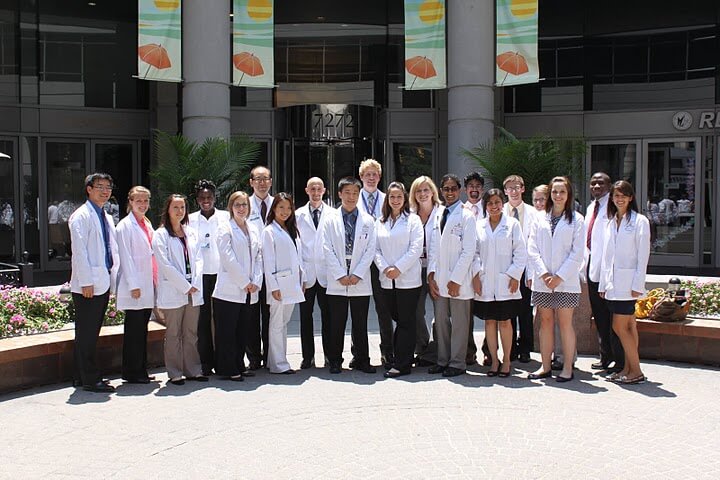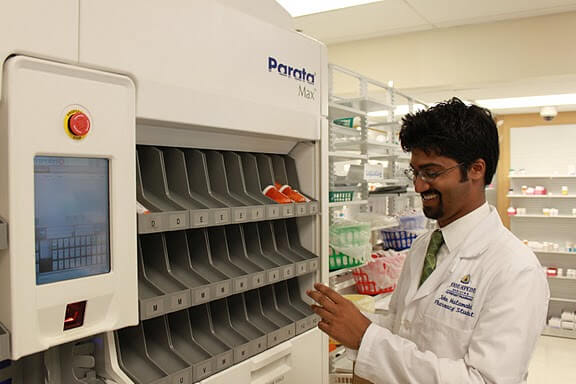Internship Program Format
Student interns participating in the program are employees of the Johns Hopkins Hospital, Johns Hopkins Bayview Medical Center, or Johns Hopkins Care at Home. Although all student interns are provided the opportunity to shadow pharmacists in areas they would like to explore, they will primarily work with one preceptor and will be based in one of the following areas:
- Ambulatory / Outpatient
- Critical care
- Education & training
- Home infusion
- Infectious disease
- Investigational drug services
- Medicine
- Oncology
- Pediatrics
- Pharmacy information systems
- Pharmacy administration
Note: All positions may not be offered each year and a vehicle may be needed, based on the student intern’s assigned location.

The Internship program usually starts the week after students finish school and concludes the week before students return to school. The student should be able to commit to complete a minimum of 9 consecutive weeks. All Introductory Pharmacy Practice Experience (IPPE) and Advanced Pharmacy Practice Experience (APPE) requirements should be completed before or after the internship program. The latest start date is the first week of June.
Student interns assume a paid, full time position, working 40 hours per week, possibly including weekend, evening and holiday hours. The projects and daily tasks assigned to student interns are not uniform and can vary greatly between each area. Assignments and scheduled hours are determined by the preceptor.

Pharmacy Practice
Most of the student intern’s time will be spent with their preceptor and/or other assigned pharmacists attending meetings and working on various assignments and projects. Approximately 25% of the internship will be dedicated to activities such as pharmacist led topic topic discussions, resident and pharmacist shadowing experiences and visits to other pharmacy practice areas.
The Department of Pharmacy also provides a plethora of educational activities such as CE programs, topic discussions led by APPE students, residents or preceptors, journal club, Pharmacy Grand Rounds, etc. Students may attend these activities as approved by their preceptor.
Finally, students assigned to a staffing area (area directly responsible for preparing medications for patients) may also spend time assisting with distributive functions and learning about the medication use policies, drug distribution system, compounding services and/or controlled substances distribution.
